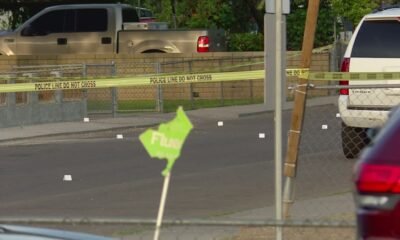American Community Survey
Phoenix Tops National Eviction Rankings

By Staff Reporter |
Phoenix, the nation’s fifth-largest city, is grappling with a troubling housing crisis, evidenced by one of the highest eviction rates in the country. A recent report from the Wall Street Journal highlights the concerning trend, showcasing personal stories from residents facing eviction.
Data from Eviction Lab, a Princeton University research group, reveals that Phoenix has 16 eviction filings per 100 renter households. With over 583,600 renter households, according to the American Community Survey, the city’s average rent approaches $1,400 monthly, placing immense pressure on residents.
Since March 2020, there have been more than 285,300 eviction filings in the area, with a staggering 90,600 filings occurring in the past year alone. Just in the last month, over 6,000 evictions were recorded. If the trend continues, the city could see nearly 92,000 evictions by year’s end, as October’s figures suggest a consistent monthly average of around 7,700 evictions.
This year, about 83,200 eviction filings have been noted, closely approaching the all-time high of approximately 83,700 in 2005. Notably, the average eviction judgment from January to September exceeds $3,100, lower than this year’s average of $3,400.
Demographically, recent evictions have predominantly affected white neighborhoods (nearly 39,700), while Latino neighborhoods saw over 20,700 evictions. Mayor Kate Gallego emphasized the need for state-level reforms to address the ongoing eviction crisis. “We don’t control evictions,” she stated to the Wall Street Journal, calling attention to the necessity for legislative change.
The surge in evictions threatens to undermine recent progress in reducing homelessness in the city, drawing national scrutiny. Maricopa County’s latest Point-In-Time Homeless Count reported over 9,400 homeless individuals in January, a slight decrease from 9,600 in January 2023.
In response to the homeless crisis, the Arizona Department of Economic Security (ADES) initiated a rental assistance program earlier this year, targeted primarily at families and individuals over 60. However, applications for this program closed in August. ADES continues to provide resources for emergency short-term housing, urging those in need to contact 211 or local Community Action Agencies.
These agencies, which offer a range of support—from utility assistance to rental deposits—are currently facing high demand. Maricopa County has five Community Action Agencies, strategically located to assist residents in need, including those operating under the City of Glendale and the City of Phoenix.
In efforts to connect individuals with available health and human services, residents are encouraged to use the Arizona Self Help questionnaire to determine eligibility for various programs.

















